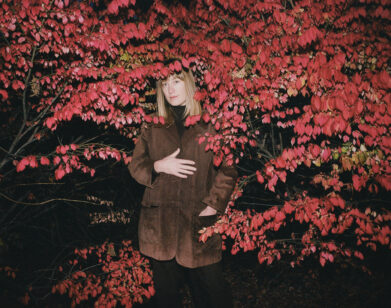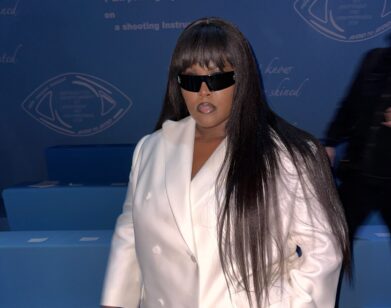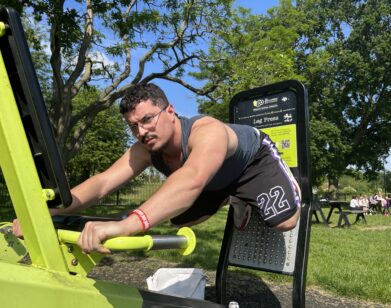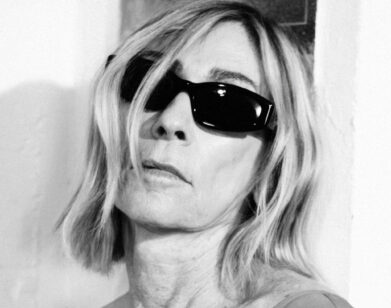The Danish Pop Star Melding Classical Ballet with Electro-Pop
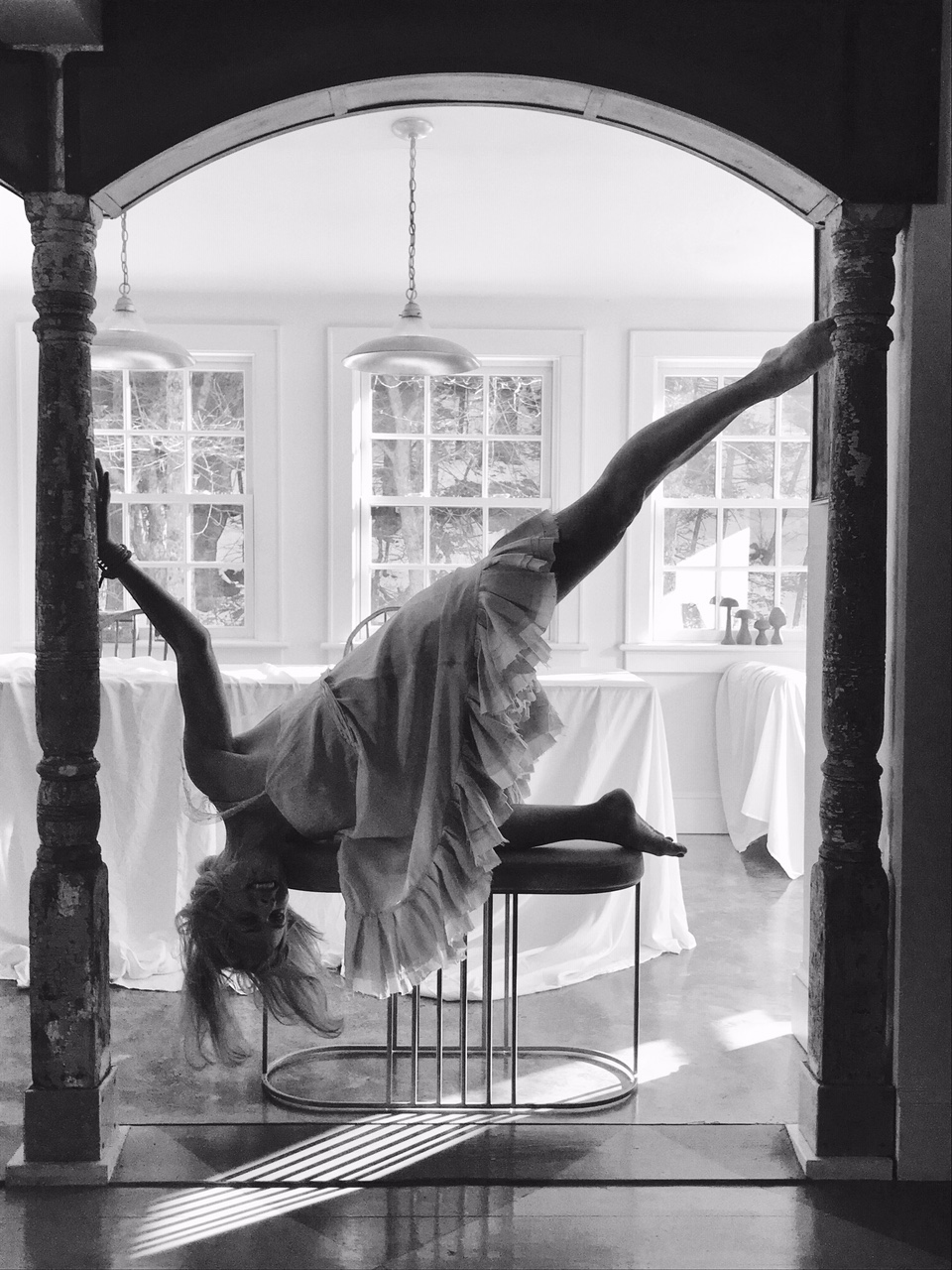
Photo by Helena Christensen.
Nanna Fabricius—or Oh Land, as her fans have come to know her—first stepped onto the music scene as a promising pop singer from a small town outside Copenhagen with her 2010 self-titled album. Much has changed since then, but Fabricius’s steadfast commitment to grinding her creative gears has not. After a five-year absence from the front lines of pop music, the singer released her fifth album, Family Tree—her most personal, and grounded, to date. Fabricius has transformed years of emotional life changes—a divorce, a baby, and a move back to her native country—into music that is rooted in growth, maturity, and compassion. But though she took time off, the singer-songwriter never really went away. While on hiatus, Oh Land tested her judging chops in the Danish version of The X-Factor, and casually composed scores for Netflix’s The Rain and Tivoli ballet’s Askepot (Cinderella), which she wrote with Queen Margrethe II of Denmark. The latter comes as no surprise; Oh Land’s mother is a classically trained opera singer. Her latest endeavor is a music video directed by Danish supermodel, photographer, and longtime friend Helena Christensen. During a lengthy phone conversation, Fabricius opened up about growing from pain, recording choir vocals for St. Vincent, and her dream of writing alt music for kids.
———
ERNEST MACIAS: Family Tree seems to be a little more personal. I can sense more maturity. Can you tell me about the process of making this album? I know you took some time off from releasing music.
OH LAND: I took time off to release solo albums, but I did do a lot of score work meanwhile. I did ballet and theater music. I think, for me, I went through so many changes that it took some years until I could make another solo album. Family Tree is about me and the things that have been happening in my family, which has been quite a lot. Within the past few years I’ve become a mother, I got divorced, my dad had a heart attack, and I fell in love again. There are a lot of roots pulled up and new branches building. So all that stuff became my family tree.
MACIAS: That’s a lot to go through, for anyone. But also it’s a really beautiful way to look at it.
OH LAND: The years following my last album, Earth Sick, I was touring, then I was pregnant, and I gave birth to my child. So all this stuff really just happened within the last three years. Also I moved from New York to Denmark. Really major changes.
MACIAS: Ddid you go away and start writing for a period of time, or did you just sort of find inspiration in all the chaos?
OH LAND: When I was writing all the songs for this album, it was literally the moment where I absolutely needed to write a song, because that was the only way I could deal with these things. I didn’t talk about it with friends or family. The only place where I could really figure all this stuff out was at the piano. It sounds like such a cheesy thing, but the piano always listens and doesn’t ask questions. You can say whatever you want to say.
MACIAS: What did you learn through the process of making this new album?
OH LAND: I feel like the hardest thing about going through a lot of dramatic change is that your family and friends want to understand. I found out that you don’t always have to understand. Sometimes you just need to accept that you don’t need to understand, you just need to let all these questions float through your system and you don’t need to answer them. It is just raw emotion.
MACIAS: There’s your song, “Make My Trouble Beautiful.” The feelings and sentiments behind it are palpable.
OH LAND: Every night before a new song is released I have been sweating and freaking out, not even wanting to go on the internet. But once it is out, it just feels like such a relief because when there’s a lot of energy behind something, that’s when you have the chance to connect to other people. When you’re in pain, there’s nothing beautiful about it. That part comes later on.
MACIAS: Do you have to get into a different creative headspace to be able to do other things, like composing ballet music?
OH LAND: I have to use my brain a lot, and not so much only my emotions. I feel like when I do my own music, I don’t even think. It’s just straight out of whatever emotion I feel. When I do ballet music I have to think in a completely different way. There’s just so much technical stuff. I have to keep track of the overall narrative in a completely different way than what I do when I write songs. It’s fun because of the challenge. It sets me free from my own music. As Oh Land, I’m restricted to a certain aesthetic. When I do scores and commission work, I have the liberty to do whatever fits that project. That allows me to explore a lot of the musical genres that I love, but doesn’t necessarily fit into my own world.
MACIAS: What’s your relationship like with St. Vincent?
OH LAND: Actually I did sing some choir backing vocals on a record that she produced. It was really intimidating, actually, to sing while she was in the studio. I wasn’t planning on it. I was just coming by to say hi to [producer] Thomas [Bartlett], and she was working on a project. And then Tom was like, “Why don’t you sing some backing vocals.” And I did. I’m not even sure it is going to get used, but just the fact that she was there producing it was quite a cool experience. That’s New York to me. Only in New York does that happen.
MACIAS: How long did you live in New York, before moving back to Denmark?
OH LAND: 7 years, and it was actually a great move. My son was 5 months old, at the time I moved, and I was just completely fed up with the bureaucracy of health insurance and all that stuff in America. But then I came to Denmark and, literally, I just got a phone call from the health insurance saying, “Oh hello, welcome to Denmark, here’s your card. Someone will come and say hi to your baby within a couple of days.” But I do miss New York a lot.
MACIAS: That’s amazing. Now tell me the story behind the name of your label, Tusk or Tooth.
OH LAND: It is pretty ridiculous. It references the narwhals. You know, the tooth on the narwhal. No one really knows if it’s a tusk or tooth.
MACIAS: What’s one thing that hasn’t changed throughout your career?
OH LAND: Where my inspiration comes from. I always write the best when I’m going through major changes. And when I’m unable to communicate in words, I’m always really attracted to melodies and making music.
MACIAS: Now that you have a kid, would you consider making kids music?
OH LAND: It’s a very good question because that is definitely a natural instinct when you have a child that you want to make things for your child. It’s definitely something that could be really fun. There’s this really cool show which is called Puffin Island and it has a symphony orchestra score. I’d like to do alternative kids music. Not just like the regular Baby Shark Dance.

